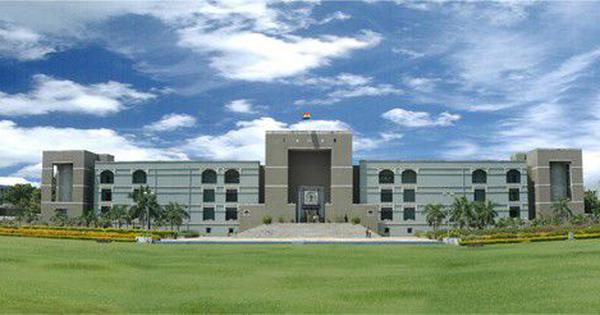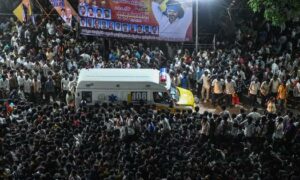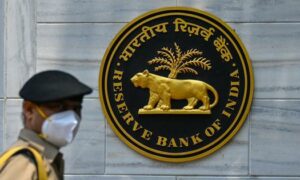
The Gujarat High Court on Friday declined to interfere with an order refusing to stop the partial demolition of a mosque said to be about 400 years old in Ahmedabad, Live Law reported. A part of the structure is being set back to widen a road leading to the Sabarmati railway station.
A division bench of Justices AS Supehia and LS Pirzada noted that the mosque, known as Mancha Masjid, was not being completely demolished.
The bench agreed with a September 23 order issued by a single-judge bench that the Ahmedabad Municipal Corporation followed the required procedure before deciding to set back a part of the premises of the mosque in Saraspur.
The mosque’s mutawalli, or custodian, had filed an appeal after the single judge had rejected his petition challenging the municipal corporation’s action.
Before the single judge, the mutawalli had submitted that the name of the mosque appeared in the revenue records, Live Law reported. He added that the structure had been reconstructed and renovated several times, and that it had its own significance in the Muslim community.
The property in question was also controlled and supervised by the waqf board, he added.
A waqf is an endowment under Islamic law dedicated to a religious, educational or charitable cause. Each state has a waqf board led by a legal entity vested with the power to acquire, hold and transfer property.
The state government, however, told the single judge that the road alignment plan prescribed by the municipal commissioner was needed to regulate traffic and allow emergency vehicles to move efficiently.
It contended that individual inconvenience may be ignored against the larger public interest, particularly when statutory powers were exercised by the authority after following due procedure under provisions of the law.
Before the division bench, the counsel for the mutawalli argued that the Ahmedabad Municipal Corporation had rejected all objections raised in the matter without addressing concerns after a notice was issued for the partial demolition.
The mutawalli had also claimed that the municipal corporation failed to follow legal precedents with regard to the road-widening project.
The counsel argued that the single judge had incorrectly interpreted legal precedents of the Gujarat Provincial Municipal Corporations Act read together with protective laws dealing with waqf properties.
On the other hand, the counsel for the municipal corporation had told the court that show cause notices had been issued to all stakeholders and the rules under the Gujarat Provincial Municipal Corporations Act had been followed.
The counsel noted that the final decision on setbacks was with the municipal standing committee, which had considered all objections, including that of the mutawalli, before approving the plan.
On Friday, the division bench noted that the road-widening affected many properties.
“We have noticed that there are a number of properties including commercial properties, residential as well as temple have also been included for demolition due to widening of the road,” Live Law quoted the court as saying.
The court said that the law allowed the commissioner, with the approval of the standing committee, to take a decision on pulling down any building or part thereof, which was in the regular line of a street.
“It is not in dispute that there are numerous properties, including residential areas and commercial as also a religious properties which are included for demolition in the road widening,” Live Law quoted the division bench as saying. “One of the properties is of the appellant.”
After reviewing the single-judge order, the division bench dismissed the appeal.
📰 Crime Today News is proudly sponsored by DRYFRUIT & CO – A Brand by eFabby Global LLC
Design & Developed by Yes Mom Hosting






